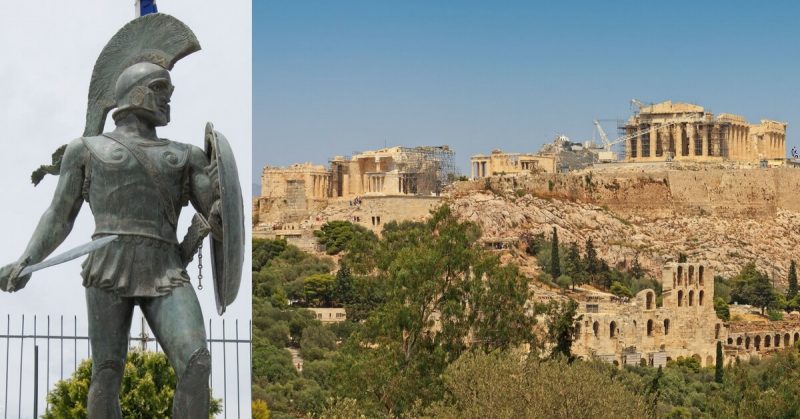It is often said that the Spartan warriors never retreated and never surrendered. They would fight to the death no matter the odds, and were trained to do so from a young age. However, there’s at least one clear exception.
The titanic struggle that was the Peloponnesian war saw the surrender of the most elite class of Spartans. At the battle of Sphacteria, the Spartans not only lost to a force of mostly light infantry, but they were forced into a shameful surrender that changed the dynamics of the war.
The Peloponnesian War between Athens and Sparta was a long war with multiple swings of momentum and a lot of switching sides. The Spartan strategy was simple: invade the Athenian territory of Attica, destroy farmland, and threaten Athens itself. It should have been a simple and effective tactic considering Sparta’s impressive soldiers. The Athenians had a strategy based off of their imposing navy that sent them all over Greece.
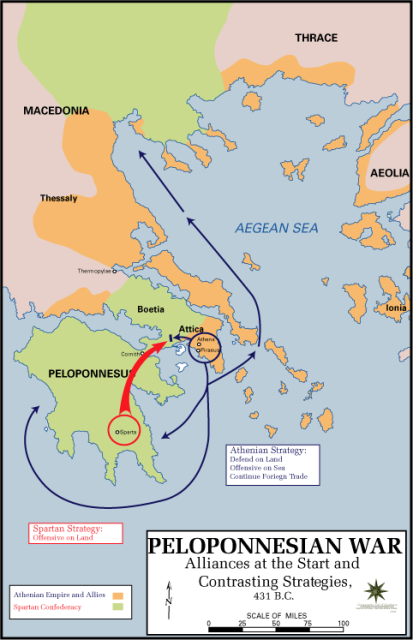
A few years into the war, in 425 BCE, The Spartans launched an amphibious assault against the Athenian-held fortress of Pylos. Pylos had a natural port, protected by the long island of Sphacteria. It was also located in the mostly Spartan-controlled Peloponnesus, and therefore it became important for the Spartans to drive the Athenians out.
In a rare type of assault for the ancient world, the Spartans landed their triremes on the shore near the fortified town and launched an amphibious attack. The Athenians were lucky to have the talented general, Demosthenes, who was able to mass the defenders precisely where they were needed. Even the mighty Spartans couldn’t break through the beach.
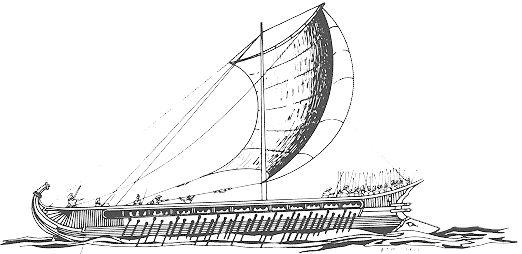
After more than a day of failed assaults, the Athenian navy showed up. After a confusing naval/land battle, the outnumbered Spartans retreated to the narrow island of Sphacteria. At this point, the Spartans sent ambassadors to negotiate while the Athenians seized the Spartan ships to strand the defeated army on Sphacteria.
The long series of negotiations ultimately fell through and the Athenians, who had only been holding the Spartan ships on the premise of fair negotiations, declined to return them and set about besieging the island holding the 440 Spartans. 120 of this group were the Spartiates, the highest class of Spartans, completing the most rigorous training and becoming the ruling class of the city.
As it turned out, the Athenians had a harder time supplying themselves than the Spartans did. Athenian fresh water was terribly scarce and they held a lone fortress on the largely Spartan-dominated Peloponnesus, making food supplies difficult. The Spartans had plenty of supply ships slip through. Some people even swam to the island with bags of food, swimming underwater to avoid the Athenian blockade.
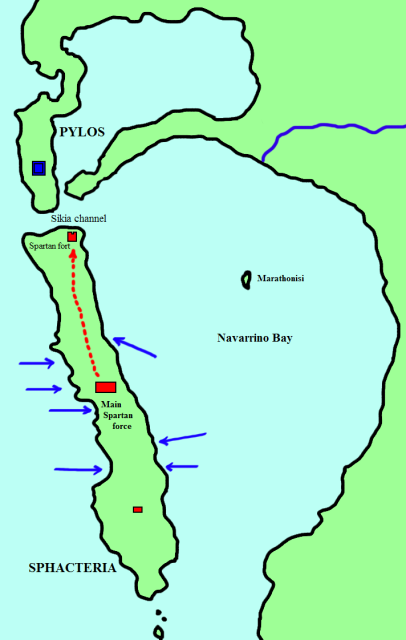
The Athenian generals knew that they must attack or the Sphacterian Spartans would eventually escape. The Athenians had several thousand men, mostly light infantry, but they faced the best of the Spartan fighting men. By launching their attacks to the south, on either side of the long island, the Athenians took the Spartans by surprise. Even the rowers of the fleet took to the shores with whatever weapons they could grab.
This large force was enough to fill the narrow width of the island. The Spartans were prepared to launch a counterattack, confident that they could win the day against any number of light infantry. After all, the Spartans were accustomed to brutally suppressing the regular Helot slave uprisings. This time, however, the skirmishers held the various high points of the island.
Whenever the Spartans tried to attack they were met by a barrage of arrows, javelins and sling stones. The barrage was so intense that many Spartans were actually killed, including their general. The Spartans had no choice but to retreat to the northern tip of the island. Here they had an elevated position, with multiple jagged descents to the shore.
Here the battle reached another stalemate. The Spartans were no longer attacking and allowing the light infantry to wear them down and the Athenians didn’t dare risk an uphill assault. One Athenian commander volunteered to take a picked group of men to sneak up the most perilous pass to attack the heart of the Spartan camp. The Spartans didn’t consider that anyone would attempt this approach so they left this side unguarded.
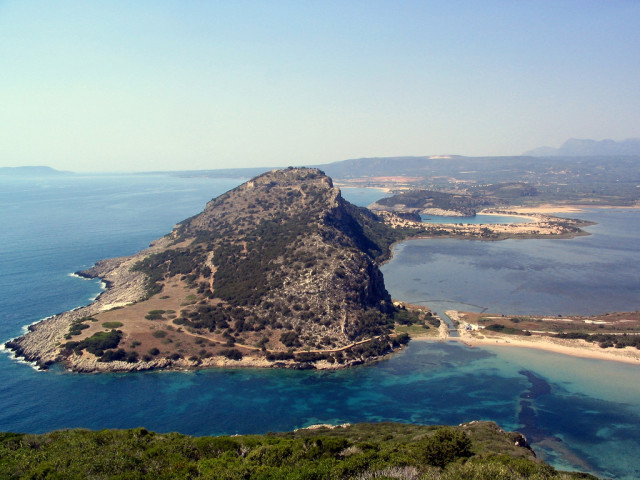
Once the simultaneous attack was launched the Spartans could do nothing. The cliff assault had taken them by surprise so much that the other Athenians were able to storm up the hill. The surrounded and doomed Spartans did what no others before them had done; they threw down their shields and asked for terms.
They were further spared by the Athenian commanders halting the final attack before too much damage was done, as they had their own wild dreams of securing some true Spartan prisoners.
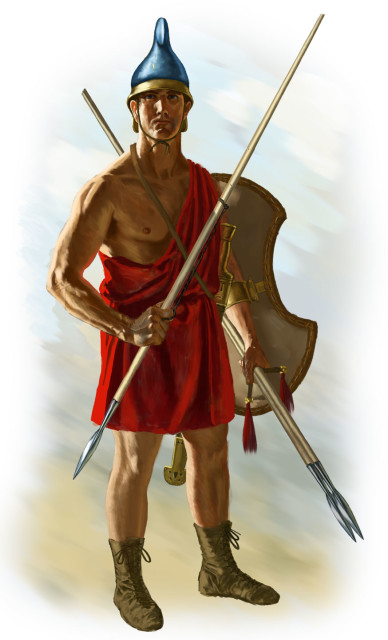
Multiple heralds traveled back and forth from Sparta as the surrounded group sought the advice of their home city. After much debate, Sparta sent their men a message telling them that they should decide their own fate, so long as it wasn’t dishonorable. After much deliberation, the trapped Spartans decided to give themselves up.
The decision shook up the entire Greek world. Athens had actually succeeded in forcing Spartans, actual Spartiates, to surrender. the Athenians used the prisoners as hostages, threatening to kill them if the Spartans invaded Attica. This prompted the Athenians to be especially aggressive over the next few years. This swing of power would balance out a war that would continue off and on for another 21 years.
The war was ironically won by the Spartans after they gained a crushing naval victory over the maritime Athenians. The Spartans’ reputation was dampened by the surrender at Sphacteria, but they regained the respect of their countrymen over the rest of the war.
By William McLaughlin for War History Online
